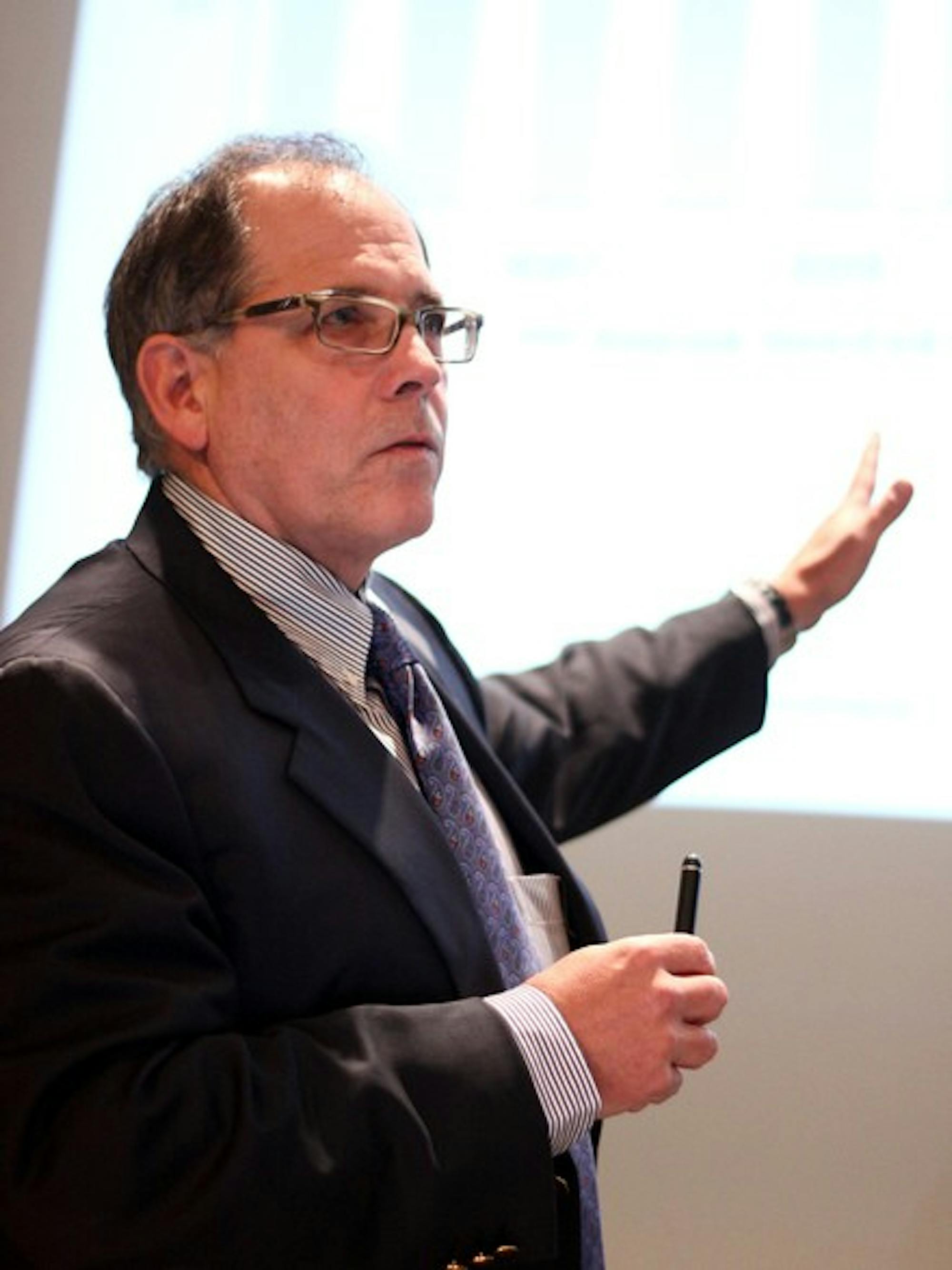Ross, a managing partner at venture capital firm SV Life Sciences, said venture capital has helped to spur job growth in the health care industry and create new treatments for HIV.
Investment in the health care industry will likely become more profitable in the near future, Ross said. The United States has one of the highest rates of health care spending as a percentage of gross domestic product in the developed world, he said, adding that American health care spending is unlikely to decline.
Ross also pointed to emerging economies such as those in Brazil, Russia, India and China all of which boast growing middle classes whose health care spending is expected to rise exponentially in coming years.
The increased prevalence of disease worldwide necessitates more spending on health care innovation, Ross said. He cited diabetes, which he said will affect 30 percent of all Americans "very shortly," as a particularly important problem to address.
"Health care is still, for most diseases, actually a partially or [completely] unsolved problem," he said. "We have ways of mitigating issues, but few ways of solving issues."
Statistics have proven a link between improvements in medical technology and an increase in longevity, Ross said. Many drugs have emerged to treat deadly diseases like HIV because of increased investment in biotechnical companies, he said.
"HIV is a disease you can live with, as opposed to a disease you will die with," Ross said.
Venture capital fulfills two important roles in the health care field, according to Ross. Firms backed by such financing have led in creating technologies that have been bought up by larger pharmaceutical companies and put on the consumer market, he said. Furthermore, many venture capital-backed firms have themselves turned into large companies, creating additional jobs.
Ross pointed to companies like GlycoFi a biotherapeutics firm developed by Dartmouth researchers in 2000 as examples of the influence of investment capital.
In spite of these advantages, venture capital in the health care field has faced challenges in the past decade, Ross said.
"In 2000, a lot of money was raised in venture capital," he said. "After that, it's tapered off a lot."
Experts in the health care industry are unsure how the decline will affect future trends in research and development, according to Ross.
"Is the pool of money that we now have access to, which is much smaller than what it was, large enough to satisfy the entrepreneurial investments that we all want to make?" he said. "No one knows the answer to that question."
Venture capital firms have an important advantage, in that they are able to make more accurate predictions about the success of innovations in the biotechnology industry than other companies, according to Ross.
"We are better at investing and choosing which companies to invest in than the public markets," he said. "[But] most of the time, we will not be able to take these companies public."
Large pharmaceutical companies are becoming increasingly reliant on innovations by smaller biotechnology companies in developing new drugs and devices, Ross said.
"These companies are good at paying for really expansive federal trials for drugs, but they are not good at innovation," he said.
The size of major pharmaceutical companies makes innovation costly for such firms, according to Ross. Venture capital is a major source of funding for the smaller companies on which such large pharmaceuticals rely, he said.
This dependence is sustainable in the long term, Ross said, noting that the largest 13 pharmaceutical companies would have enough free cash flow to buy up the entire biotech industry "in three years."
Ross pointed to impending patent expirations, which will substantially reduce drug companies' $113 billion revenues when the patents expire "in several years," as incentives for firms to find new sources of money.
President Barack Obama's health care reform bill will increase companies' revenue bases in the short and medium-term, Ross said.
"There are 30 million new lives being insured," he said. "If the world of investment changes, then we must change."




